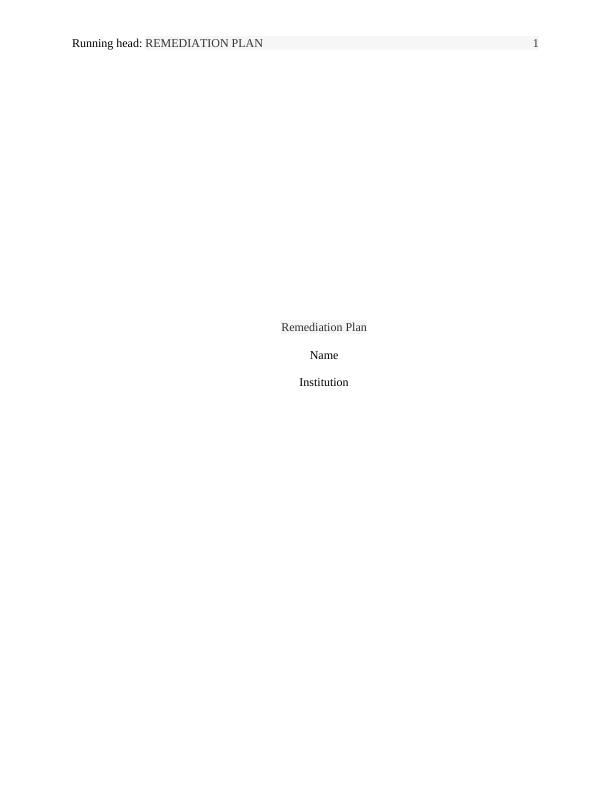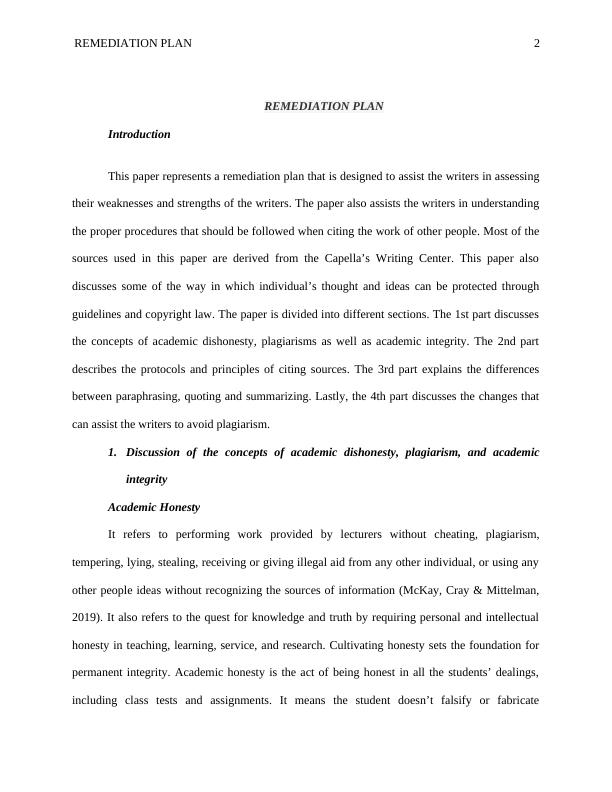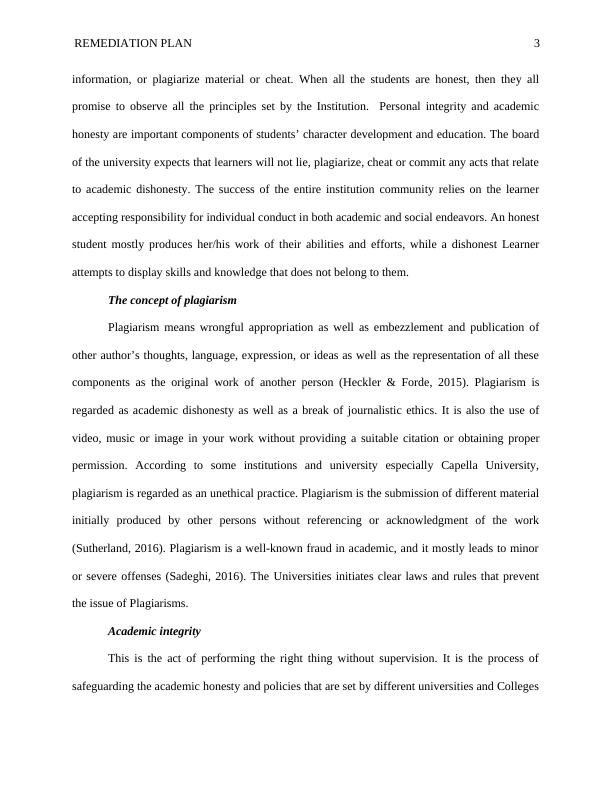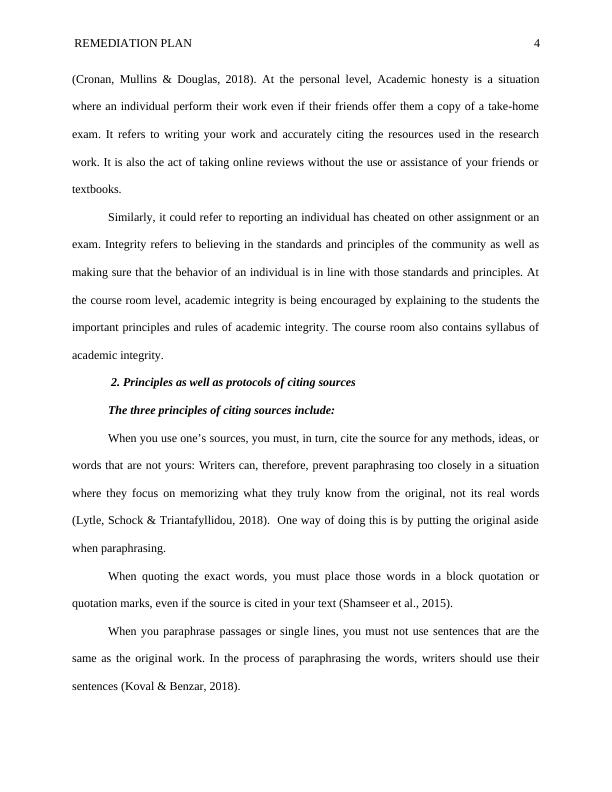Remediation Plan
13 Pages3570 Words52 Views
Added on 2023-04-21
About This Document
This paper represents a remediation plan that is designed to assist the writers in assessing their weaknesses and strengths of the writers. The paper also assists the writers in understanding the proper procedures that should be followed when citing the work of other people.
Remediation Plan
Added on 2023-04-21
ShareRelated Documents
End of preview
Want to access all the pages? Upload your documents or become a member.
A Game for Students to Prevent Plagiarism and Academic Dishonesty
|5
|773
|88
Academic Integrity: Developing a Game to Avoid Plagiarism and Misconduct
|5
|958
|250
Importance of Academic Integrity in Higher Education
|9
|2427
|47
Academic Honesty And Integrity
|5
|1251
|15
Academic Integrity and Its Importance in Higher Education
|8
|2448
|341
Academic Plagiarism and its Relevance to Professionalism in Business Environment
|8
|1245
|440




